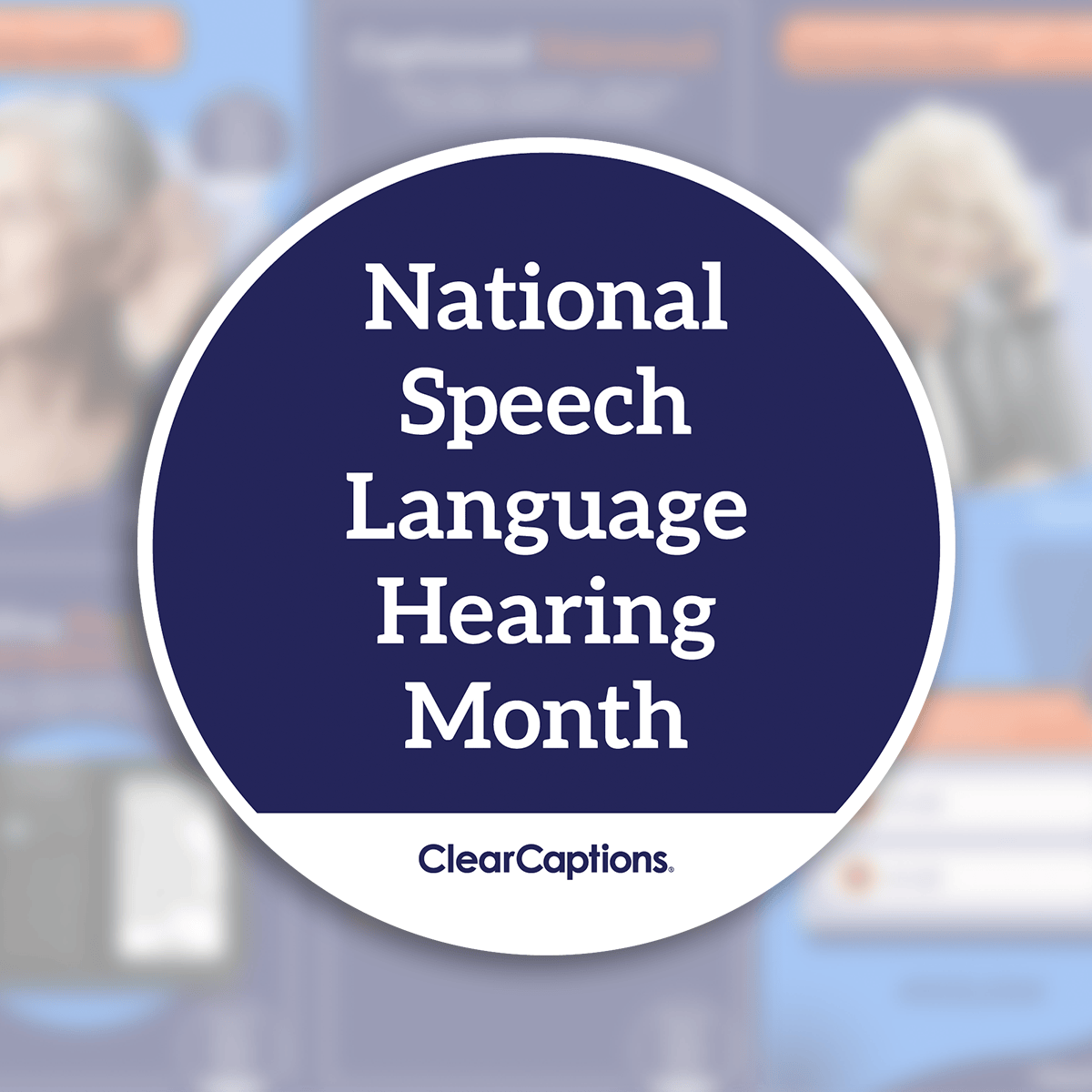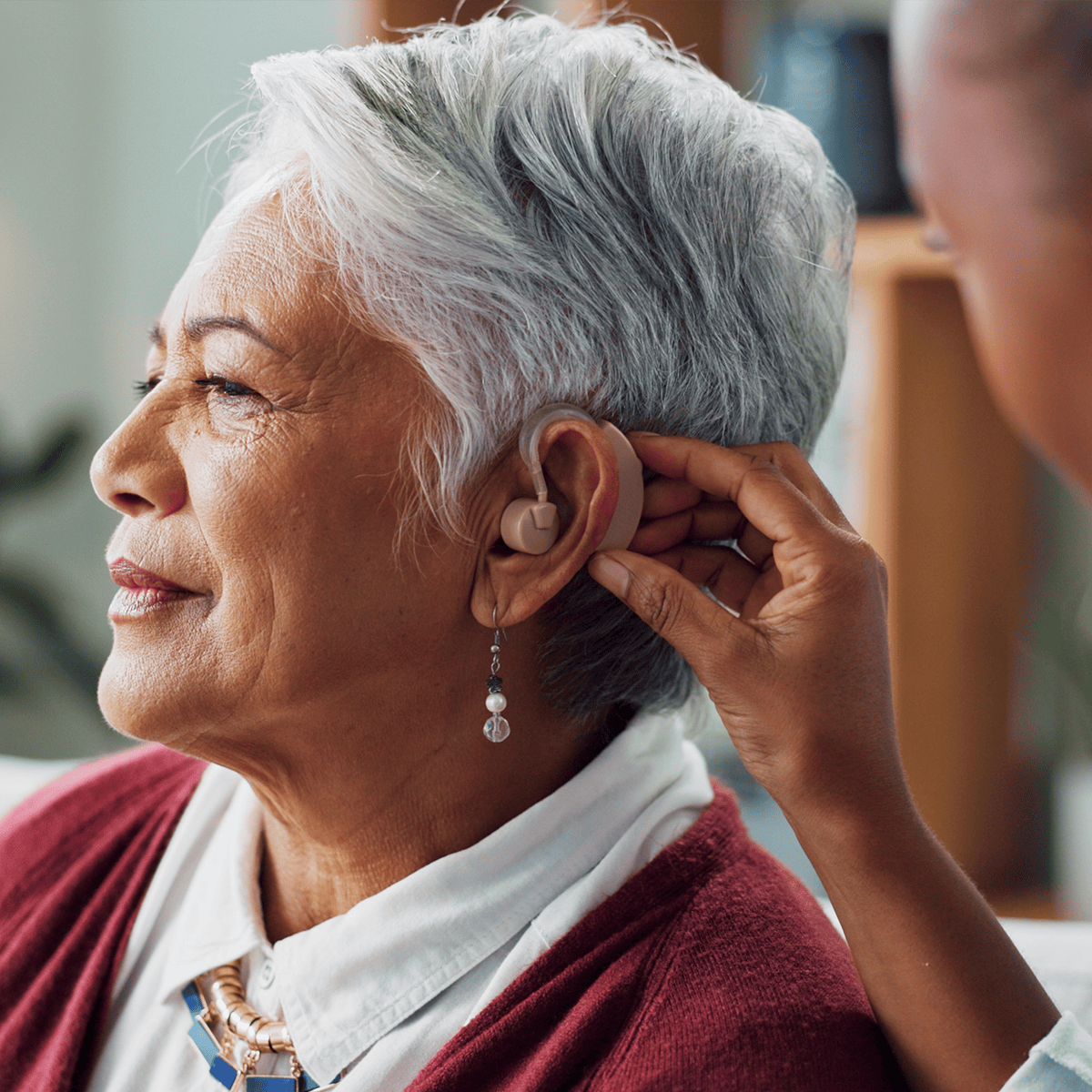Speech-Language-Hearing Month: History & Resources


Each May, we celebrate National Speech-Language-Hearing Month, an important time to raise awareness about hearing loss and the resources available to help. This meaningful observance gives us a chance to focus on communication health and the various ways we can improve our connections with others.
The History of National Speech-Language-Hearing Month
National Speech-Language-Hearing Month began as Better Hearing and Speech Month began in 1927 and was established by the American Society for the Hard of Hearing. In 1986, President Ronald Reagan formally recognized May as the official month for this observance.
Over the years, Better Hearing and Speech Month evolved into what is now known as National Speech-Language-Hearing Month. According to Vicki R. Deal-Williams, President and CEO of the National Association for Hearing and Speech Action, “Today’s realities are much different from what they were more than 50 years ago, when NAHSA launched Better Hearing and Speech Month. We see the new name as an appropriate and needed step forward.”
Why National Speech-Language-Hearing Month Matters

Hearing loss is a common condition that affects millions of Americans, particularly older adults. According to the National Institute on Deafness and Other Communication Disorders (NIDCD), approximately one in three people between the ages of 65 and 74 has hearing loss. May is National Speech-Language-Hearing Month because we need this dedicated time to:
- Raise awareness about hearing loss and its impact on daily life
- Reduce the stigma of using hearing aids and assistive devices
- Encourage regular hearing screenings, especially for seniors
- Highlight the advances in technology that make communication easier
When we address hearing concerns promptly, we maintain stronger connections with family and friends, stay more engaged in our communities, and often enjoy better overall health.
Recognizing Signs of Hearing Loss
During National Speech-Language-Hearing Month, it’s helpful to know these common signs of hearing loss:
- Frequently asking others to repeat themselves
- Difficulty following conversations in noisy environments
- Turning up the volume on the TV or radio louder than others prefer
- Trouble hearing on the telephone
- Feeling that others are mumbling when they speak
- Avoiding social situations because of hearing difficulties
If these signs sound familiar, National Speech-Language-Hearing Month is the perfect time to schedule a hearing evaluation.
Organizations Supporting Better Hearing
The American Speech-Language-Hearing Association (ASHA) leads efforts each May with educational campaigns and resources. During National Speech-Language-Hearing Month, ASHA and other organizations work to:
- Provide information about hearing health
- Connect people with qualified hearing specialists
- Advocate for better access to hearing care
- Share advances in hearing technology
Many local hospitals, senior centers, and community health clinics also offer special events during National Speech-Language-Hearing Month, often including hearing screenings.
Technology’s Role in Better Hearing
Modern technology has transformed the options available for those with hearing loss:
- Digital hearing aids that can filter background noise
- Assistive listening devices for specific situations like watching TV
- Caption phones that display conversations as text
Caption phones, like those offered by ClearCaptions, show the words callers say on a clear screen. This technology helps ensure you don’t miss important information during phone calls with family, friends, or healthcare providers.
For those who qualify, the ClearCaptions Phone and its call captioning service are available at no cost through a federally managed program supported by the Americans with Disabilities Act.
Taking Action This May
National Speech-Language-Hearing Month is about awareness and action. Here are practical steps you can take right now to support yourself or someone you love:
- Schedule a hearing check-up with your doctor or a hearing care professional
- Learn about communication strategies for difficult listening situations
- Explore hearing assistive technologies that might work for you
- Share what you learn with friends and family who might benefit
Small changes can make a big difference in your hearing experience and overall quality of life.
The Benefits of Better Hearing
Addressing hearing concerns isn’t just about hearing better—it’s about staying connected to what matters most. Better hearing means enjoying conversations with friends and family, understanding important medical information, maintaining independence in daily activities, and feeling more confident in social settings.
As we recognize National Speech-Language-Hearing Month, remember that taking care of your hearing health is taking care of your overall well-being. The connections we maintain through better hearing enrich our lives in countless ways.
This month, and every month, consider taking one step toward better hearing and better living.







